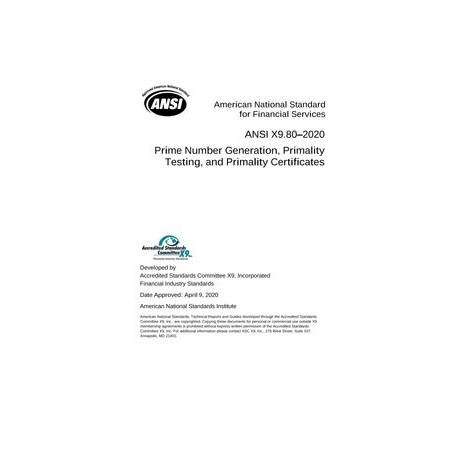Cart
0
Product
Products
(empty)
No products
To be determined
Shipping
$0.00
Total
Product successfully added to your shopping cart
Quantity
Total
There are 0 items in your cart.
There is 1 item in your cart.
Total products
Total shipping
To be determined
Total
Reduced price!
 View larger
View larger
 View larger
View larger
X9 X9.80-2020
M00001647
New product
X9 X9.80-2020 Prime Number Generation, Primality Testing, and Primality Certificates
standard by Accredited Standards Committee X9 Incorporated, 04/09/2020
In stock
More info

